POSTECH is a top-tier private research university located in Pohang, South Korea. Established in 1986 by POSCO, one of the world’s largest steel companies, POSTECH was founded with a vision to become a world-class institution in science and technology. Despite its relatively young age, POSTECH has rapidly gained a strong international reputation for academic excellence, cutting-edge research, and innovation.
POSTECH is recognized for its small class sizes, personalized education, and one of the highest research outputs per faculty in Asia. The university is also home to the POSTECH Biotech Center, Pohang Accelerator Laboratory, and other world-renowned research facilities. With a strong emphasis on interdisciplinary collaboration and entrepreneurship, POSTECH provides a rigorous and rewarding academic environment.
University Overview
-
Location: Pohang, South Korea
-
Established: 1986
-
Student Population: Approx. 3,500
-
International Students: 400+ from 40+ countries
-
Language of Instruction: English & Korean
-
Schools and Divisions: 4 undergraduate divisions, multiple graduate departments
-
Research Focus: Materials Science, Physics, Biotechnology, Artificial Intelligence, Energy Engineering
Academic Structure at POSTECH
Undergraduate Divisions:
-
Division of Humanities and Social Sciences
-
Division of Mathematics, Physics, and Chemistry
-
Division of Life Sciences and Biotechnology
-
Division of Engineering and IT
Graduate Departments:
-
Mechanical Engineering
-
Materials Science and Engineering
-
Chemical Engineering
-
Electrical Engineering
-
Computer Science and Engineering
-
Life Sciences
-
Industrial & Management Engineering
-
Interdisciplinary Programs in AI, Robotics, Energy, and Biotech
Intakes
-
Spring Intake: March
-
Application Deadline: September – October (previous year)
-
-
Fall Intake: September
-
Application Deadline: March – April
-
Note: Application dates may vary slightly each year and depend on the program. Early application is encouraged for visa and scholarship processing.
Admission Requirements
| Program Level | Academic Requirements | IELTS | TOEFL iBT | PTE Academic |
|---|---|---|---|---|
| Undergraduate | High school diploma with strong GPA & science/math focus | 6.5 (no band below 6.0) | 83+ | 58+ |
| Postgraduate | Bachelor’s degree in a relevant STEM field | 6.5 – 7.0 | 90+ | 60+ |
Additional Requirements:
-
Statement of Purpose
-
Recommendation Letters (usually 2)
-
Online Interview (for some programs)
-
Optional standardized tests (SAT, ACT, GRE beneficial)
-
Research proposal for research-based graduate programs
Top Programs at POSTECH
Undergraduate Programs:
-
BSc in Mechanical Engineering
-
BSc in Computer Science and Engineering
-
BSc in Electrical Engineering
-
BSc in Life Sciences
-
BSc in Materials Science and Engineering
Graduate Programs:
-
MSc in Artificial Intelligence
-
MSc in Biotechnology
-
MSc in Robotics and Autonomous Systems
-
MSc in Environmental and Energy Engineering
-
MSc in Computational Science and Engineering
Tuition Fees (USD/year)
| Program Level | Estimated Tuition Fee (USD/year) |
|---|---|
| Undergraduate | $6,000 – $8,000 |
| Postgraduate | $7,000 – $9,500 |
| Doctoral | $0 (Fully funded for most research-based PhDs) |
Note: Tuition fees may vary slightly by department and change annually.
Scholarships for International Students
POSTECH Presidential Fellowship (Undergraduate & Graduate)
-
Eligibility: Outstanding international students
-
Benefits:
-
Full tuition waiver
-
Monthly stipend ($300–$700)
-
Free dormitory accommodation
-
Graduate Research Assistantships
-
Eligibility: Graduate students involved in lab research
-
Benefits:
-
Tuition support
-
Monthly stipend (varies by lab funding)
-
Korean Government Scholarship Program (GKS)
-
Eligibility: Undergraduate and postgraduate applicants from eligible countries
-
Benefits: Full tuition, stipend, airfare, and language training
Why Choose POSTECH?
-
One of Asia’s top universities for science and engineering
-
Founded by POSCO, with close industry integration and job opportunities
-
Highly personalized education with low student-to-faculty ratio
-
State-of-the-art research infrastructure and laboratories
-
English-taught programs and strong international student support
-
Competitive scholarships and affordable cost of living
-
Research-intensive environment with strong innovation and entrepreneurship culture





